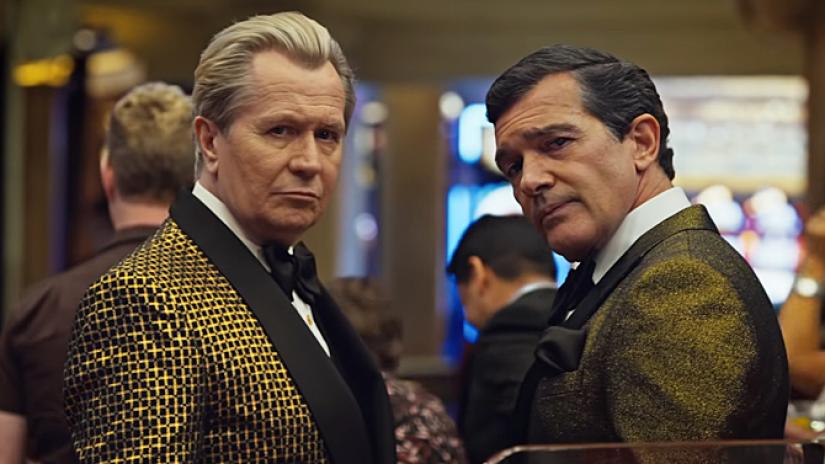Now, the real Mossack and Fonseca are taking Netflix to court.
The 45-page lawsuit that was filed in a Connecticut district court on Tuesday charges Netflix with defamation, invasion of privacy, trademark infringement, and false advertising, and requests that the film’s Friday release be put on hold.
The movie—with its “libelous” title—“portrays (Jürgen Mossack and Ramón Fonseca) as ruthless uncaring lawyers who are involved in money laundering, tax evasion, bribery and/or other criminal conduct,” the preliminary statement reads, later adding that the film will lead the public to think that Mossack and Fonseca are “individuals with aberrant personalities” and will turn them into the “poster children for money laundering and tax evasion.”
It moves on to provide a detailed second-by-second description of the movie’s August trailer—which, the plaintiffs note, impishly asserts itself as being “based on some real shit.”
In one stretch of frames, a fictionalized lawyer states “they’re getting away with murder”, and seconds later Banderas, playing Fonseca, sits in a nightclub wearing a “flamboyant gold colored [suit]” and asks the audience: “So how does it all work?’”
In another scene, Oldman (playing Mossack) and Banderas are depicted standing in a boardroom with “concerned ‘we’ve been outed’ expressions,” according to the filing.
“The implications and innuendo converge to cast [Mossack and Fonseca] in the light of mastermind criminals whose crimes include (...) murder, bribery, money laundering and/or corruption,” the lawsuit states, later making a point to add that the plaintiffs “have no connection to Cartel murders or Russian gangster money laundering.”
The action also states that the plaintiffs did not authorize the use of the Mossack Fonseca logo, which is used “in disparaging ways” a total of 8 times between the trailer and the film.
Mossack Fonseca gained notoriety because of the Panama Papers - a leak of 11.5 million confidential documents that were downloaded from the firm’s servers by a whistleblower and shared with Bastian Obermayer of Süddeutsche Zeitung. More than 300 journalists in over 100 newsrooms around the world, including OCCRP, helped investigate and break the Pulitzer Prize-winning story in 2016.
The investigation exposed the illicit infrastructure of global tax havens and showed how the wealthy and well-connected utilized them to skirt their taxes and hide ill-gotten assets. The leaked documents mentioned 14,152 clients across 202 countries, including 29 Forbes-listed billionaires, and 140 then-current or former heads of state, politicians, and public officials.
Since its publication, prosecutors around the world have been able to recover US$1.2 billion in fines and back taxes.
Mossack Fonseca has insisted that the documents unfairly represented just a small fraction of its business, and several pages of Tuesday’s lawsuit describe the ways in which the Panama Papers investigation led to the “loss of its entire client base.” The firm has been effectively shut down since early 2018.
The two men themselves have spent the last four years fighting two criminal cases in Panama and are also under investigation by U.S. authorities, who charged four men associated with the law firm with tax crimes last year. The new Netflix film, the lawsuit asserts, may result in “unnecessary and unwanted legal attention” from prosecutors.
In addition to requesting a jury trial, as well as damages from Netflix, Mossack and Fonseca are asking for injunctive relief to halt the release of “The Laundromat,” as the film stands to “pollute a potential jury pool in a U.S. criminal prosecution.”
The title of the film comes from a term coined by OCCRP in 2014 and is meant to describe an interconnected system of offshore bank companies, banks, fake loans, and proxies that is used to move, obscure, hide, and “launder” money on a massive scale.
While Mossack Fonseca was itself not a laundromat, it created some of the companies used in these systems.

